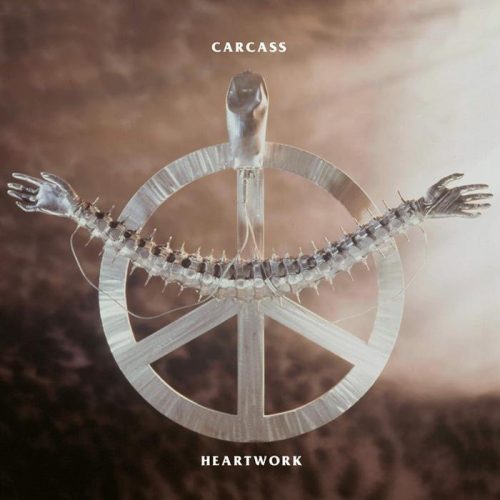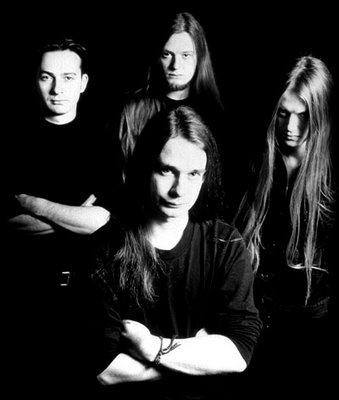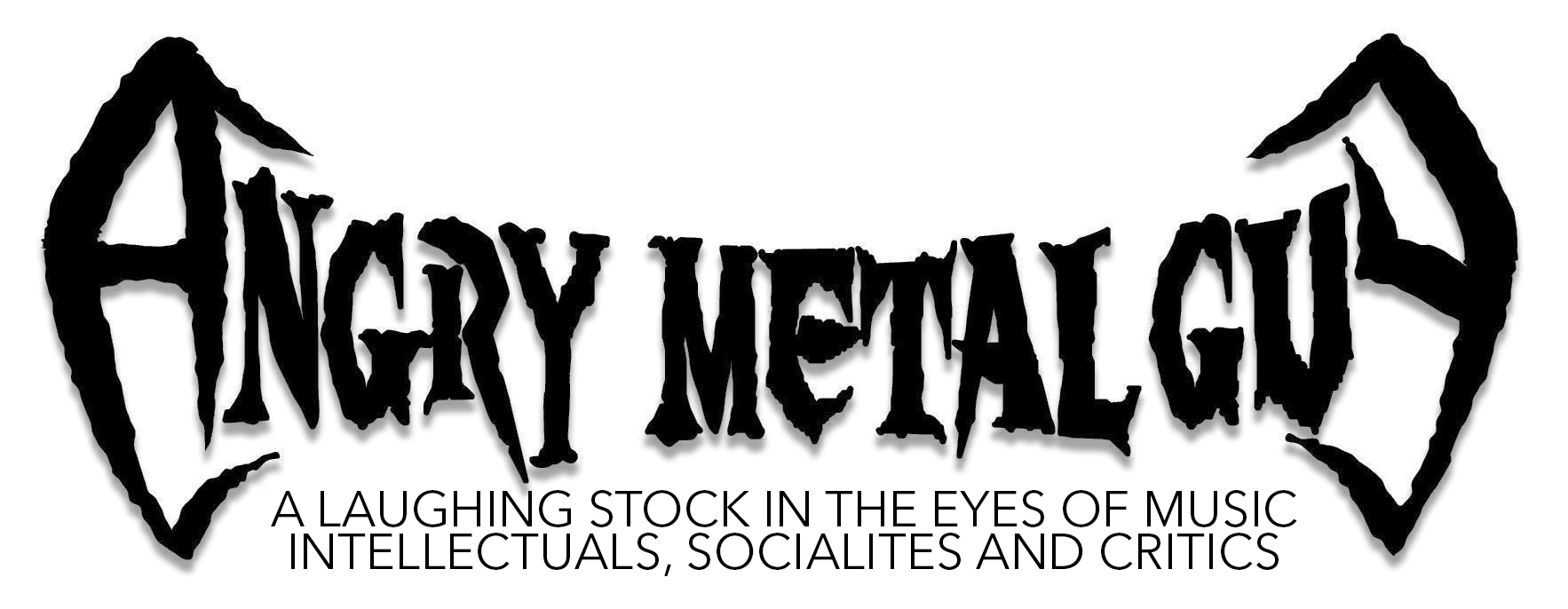 Heartwork, the fourth album by Liverpool’s Carcass, was an anomaly in 1993 for several reasons. Sure, the signs existed on 1991’s Necroticism – Descanting the Insalubrious that the Brits1 were growing more proficient at their instruments, and were slowly leaving their goregrind roots behind them. But while Necroticism kept one foot in their murky, surgically grotesque past, Heartwork, inspired by the “get to the fucking point” approach adopted by Metallica and Pantera, saw Carcass eschewing gory lyrics and guitarist Bill Steer’s growls entirely, trimming the fat considerably, and saw them streamline their attack with incredible lead guitar work, hooks galore, and a simplified verse/chorus/verse approach, angering their diehard fanbase. It didn’t help that shortly after release, the band saw Heartwork get re-released through Columbia Records via the label’s partnership with Earache Records,2 further driving home the screams of “sell-outs” shortly after release. But despite the nay-sayers plugging their ears and turning up their noses at their goregrind heroes for “selling out,” Carcass would have the last laugh, as Heartwork would go down as the band’s biggest triumph, and one that would inspire legions of death metal bands for decades to come.
Heartwork, the fourth album by Liverpool’s Carcass, was an anomaly in 1993 for several reasons. Sure, the signs existed on 1991’s Necroticism – Descanting the Insalubrious that the Brits1 were growing more proficient at their instruments, and were slowly leaving their goregrind roots behind them. But while Necroticism kept one foot in their murky, surgically grotesque past, Heartwork, inspired by the “get to the fucking point” approach adopted by Metallica and Pantera, saw Carcass eschewing gory lyrics and guitarist Bill Steer’s growls entirely, trimming the fat considerably, and saw them streamline their attack with incredible lead guitar work, hooks galore, and a simplified verse/chorus/verse approach, angering their diehard fanbase. It didn’t help that shortly after release, the band saw Heartwork get re-released through Columbia Records via the label’s partnership with Earache Records,2 further driving home the screams of “sell-outs” shortly after release. But despite the nay-sayers plugging their ears and turning up their noses at their goregrind heroes for “selling out,” Carcass would have the last laugh, as Heartwork would go down as the band’s biggest triumph, and one that would inspire legions of death metal bands for decades to come.
From the opening notes of “Buried Dreams,” you could sense that Carcass’ newfound approach would change the overall delivery of their songwriting, as well as paving the way for many acts to follow. Slowed down just enough to build up tension, Steer’s rhythm playing3 and multi-layered melodies pulled just as much from Iron Maiden as it did other death metal bands at the time. But unlike Maiden, who seemed to enjoy stuffing albums to the hilt with material (for better or worse), Carcass kept things slim and compact, with no song creeping above the five-minute mark (except for “Embodiment”). And while bassist Jeff Walker did away with the gore, his trademark acerbic humor and witty wordplay were still abundant, if not more cutting (from “Embodiment”: “Bound down, in God we’re trussed, foul nature/Icons embodied in flesh, we nail.”).
Above everything else, though, Heartwork is a guitar fanatic’s wet dream. The brutal-yet-hooky riffwork of Steer laid a solid bed for him and Michael Amott to lay their jaw-dropping lead work on, and those leads soar. “Carnal Forge” and the title track teem with sweep arpeggios, impressive fretwork, and pinch harmonics that would make Zakk Wylde sob hysterically. Their back-and-forth lead guitar trade-offs put them on the same pedestal as Dave Murray/Adrian Smith and K.K. Downing/Glenn Tipton, especially on late album highlight “Blind Bleeding the Blind.”4 Given more airplay, I firmly believe that Carcass would have seen some high-profile tours around the mid-Nineties just on the strength of their songs and solos.
 The Colin Richardson production aided significantly in Heartwork’s success. Cold and clinical, like the band’s prior fascination with surgery, his production and careful ear made sure the album lacked warmth, but struck with surgical precision. Remarkably enough, though, you could still hear Walker’s bass presence through the warring guitar duels, and Ken Owen’s drumkit retained a bit of an organic feel to it. Another criticism at the time, though, was that many felt Owen’s contributions held the album back a bit, seeing as how his bandmates raised the bar musically, but I can’t picture the album being what it is if Owen went into Gene Hoglan Mode on here. His incredible flourishes on “Blind Bleeding the Blind” added to the cacophony brilliantly, and his blasts on the title track made the song the benchmark Carcass would be known for from that point forward.
The Colin Richardson production aided significantly in Heartwork’s success. Cold and clinical, like the band’s prior fascination with surgery, his production and careful ear made sure the album lacked warmth, but struck with surgical precision. Remarkably enough, though, you could still hear Walker’s bass presence through the warring guitar duels, and Ken Owen’s drumkit retained a bit of an organic feel to it. Another criticism at the time, though, was that many felt Owen’s contributions held the album back a bit, seeing as how his bandmates raised the bar musically, but I can’t picture the album being what it is if Owen went into Gene Hoglan Mode on here. His incredible flourishes on “Blind Bleeding the Blind” added to the cacophony brilliantly, and his blasts on the title track made the song the benchmark Carcass would be known for from that point forward.
Sadly, misfortunes plagued Carcass shortly after Heartwork’s release. Amott would quit the band immediately following completion, replaced temporarily by American guitarist Mike Hickey (and later by British guitarist Carlo Regadas). Heartwork, while lauded by metal press for being influential, didn’t draw as many fans as Columbia hoped, and later dropped the band after pulling funding for what ended up being Carcass’ then-final album, 1996’s abysmal Swansong, which saw the band folding prior to release due to in-fighting. Thankfully, they’re back with us after an eleven-year lay-off, and graced us with an amazing return in 2013’s spectacular Surgical Steel, with new music forthcoming. But even if they were no longer exhumed to consume, I would still be proud to induct Heartwork, one of my all-time favorite albums ever, into the Hallowed Halls of the Olde.

















